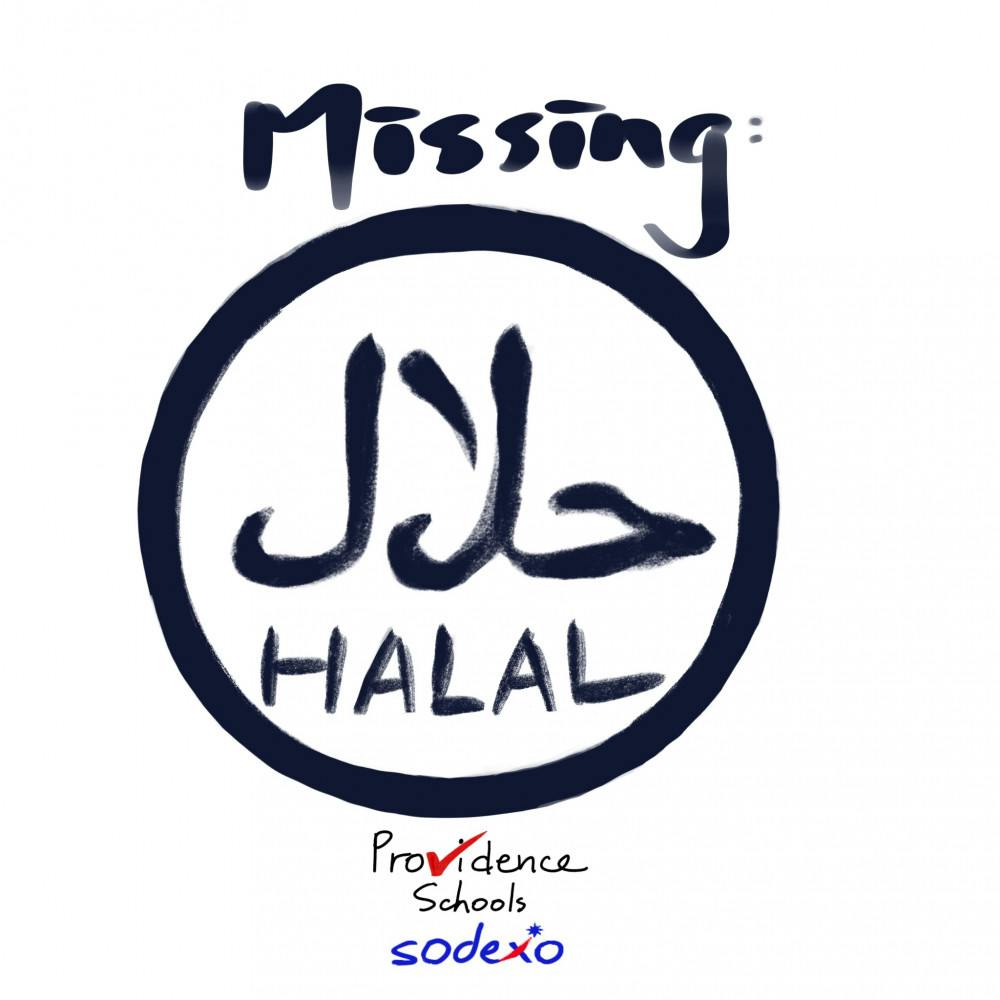Though Providence Public Schools serve lunch to tens of thousands of students each year, not every student can look forward to a school-provided meal.
Students who keep halal — or only eat food that has been prepared in accordance to Islamic law as specified in the Quran — are unlikely to find acceptable options in their school cafeterias. At lunch, “there is no such thing as halal food in any of these school(s),” wrote Abdourahim Akimana, Providence Public School liaison for Dorcas International Institute of Rhode Island in an email to The Herald.
While the state must ensure that every school district follows state and federal nutrition guidelines, the state does not review the specific food options districts provide, wrote Megan Geoghegan, communications director for the Rhode Island Department of Education, in an email to The Herald. The Providence Public School Department provides food through Sodexo USA, a national food and facilities management company.
Among the state’s Muslim residents are those who have resettled from Muslim-majority nations. Since 2007, 283 refugees from Iraq and 40 from Afghanistan have relocated to Rhode Island, according to data from the Refugee Processing Center within the U.S. Department of State. Up to 136 Syrians have also come to call Rhode Island home, as the Providence Journal reported in November.
Akimana, who has helped resettle families from Syria, Somalia and Iraq, wrote that parents’ first concern when enrolling their children into the public school system is whether or not they will have access to halal food options. “Most of these Muslims’ children would rather starve than eat non-halal food,” he added.
About a dozen halal grocers operate in the Providence area, so parents may send their kids to school with homemade lunches. But some Muslims, including refugees, are on food stamps, Akimana noted, so for some families, the absence of subsidized halal meals at school is an economic “burden on parents or children,” Akimana wrote.
While Sodexo does not regularly offer halal lunches, “its food service staff does work with students who have special dietary requirements,” wrote Laura Hart, director of communications for Providence Public Schools, in an email to The Herald. She added that parents can request specific food restrictions directly through the schools.
Halal is not the only dietary classification missing from the average Providence Public School lunch menu. For example, observant Jewish students may not find kosher food. But only a handful of observant Jewish students in the Providence Public Schools could not find satisfactory meal options, according to kosher-keeping Penina Satlow ’22, who graduated from Classical High School last year and was able to eat vegetarian food at school.
Sodexo has provided kosher and halal options in the past to various schools that contract with the company. In 2018, for instance, a Change.org petition from a Florida State University student brought Sodexo-catered halal dining to campus. Akimana noted that he has not seen any local advocacy to bring halal food options to Providence Public Schools.
Mark Jeffrey, Sodexo’s district manager for Providence schools, expressed commitment to providing food choices to all of Providence’s public school students. He stressed that if Sodexo could not provide kosher or halal options for students, the company could outsource the request. “We’re obligated to source that product for them, and we’d be happy to do so,” he said.
— With additional reporting by Sophie Culpepper.





